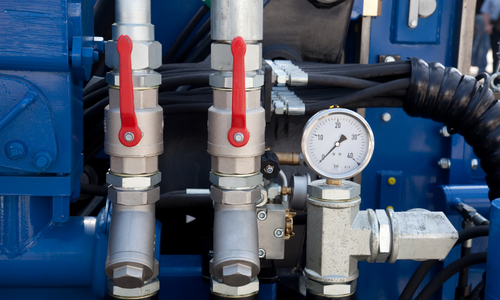
All About Hydraulics ~ Protect Your Hydraulic Cylinders from Extreme Heat and Cold
Looking to learn all about hydraulics? You’ve come to the right place! Your hydraulic systems are made to handle demanding work conditions and harsh environments. But even the most rugged, high-performing equipment can fail due to certain harsh conditions. In work environments that involve high and low temperatures, the hydraulic cylinders and the components of these robust systems are prone to damage.
Whether you operate mobile or industrial hydraulic equipment, use these tips below to help you understand all about hydraulics, the effects of high and low temperatures on your hydraulic systems, and how to protect them from damage.
Protecting Your Hydraulic Cylinders in Extreme Heat
All hydraulic systems generate heat during operation. Extremely high temperatures, however, either from mechanical or environmental sources, can do hard on your hydraulic system.
High Temperatures and Hydraulic Fluid Viscosity
Do you know how oil will thin out once you add it to a hot pan? Well, heat has the same effect on hydraulic fluid and lubricants. Heat is considered a type of hydraulic cylinder fluid contamination because of how it changes the chemical properties, which results in lower fluid viscosity and oxidation. The changes heat causes affect how well fluid lubricates the hydraulic cylinder components. Inadequate lubrication increases friction, which makes your hydraulic cylinders and components more prone to damage and wear.
Changes to Hydraulic Cylinder Seals and Hoses in High Temperatures
Extremely high temperatures can alter material properties, causing the seals and hoses to lose resistance to tearing, abrasion, or friction. Seals that have been compromised can introduce moisture, grime, and air into your hydraulic fluid and cause your system to fail. Construction and other applications that involve prolonged exposure to extreme heat should consider Viton, PTFE, or other materials with high-temperature ratings.
Protecting Hydraulic Cylinders in Extreme Cold
All Phase Hydraulics is based in Michigan, so we know it is cold! We also know that exposure to low temperatures is hard on your hydraulic cylinders, especially the seals and fluid.
Low Temperatures and Hydraulic Fluid Viscosity
Hydraulic fluid has a freezing point of -10 F (-23 C), but even temperatures above the freezing point can change the fluid viscosity. Cold temperatures cause the fluid to thicken, making it more difficult for the fluid to move through your system. Lubricants are also sensitive to extreme temperatures and can harden or lose lubricity in extreme cold.

Using hydraulic fluid with a lower viscosity grade can help prevent hydraulic cylinder failure in those colder temperatures. Another way to maintain the fluid viscosity in colder temperatures is using an externally mounted heat source. There are many different types of heating elements you can purchase to keep the hydraulic fluid at the right temperature and viscosity.
How Cold Affects Cylinder Seals and Components
Elastomer and thermoplastic hydraulic seals will shrink and harden under cold conditions, which makes the sealed components more prone to leaks. Worn deals cause hydraulic cylinder failure, so it’s crucial to protect your seal components from lower temperatures.
Temperature ratings for hydraulic hoses and seals vary widely because of what material they are made out of. If you plan to use your hydraulic cylinders in frigid temperatures, choose components that have a low temperature rating and are compatible with your hydraulic fluid type.
Preventative Maintenance and Using the Right Parts Make a Difference
Performing regular preventative maintenance paired with understanding your mobile equipment application and its operating environment will protect your hydraulic cylinders and other equipment and keep your hydraulic system in pristine condition. Check your fluid levels regularly and inspect your seals and hoses for any signs of wear. Replace bad fluid and worn parts right away will also prevent bigger issues down the road.
All Phase Hydraulics has the parts you need. Everything from custom cylinders to high-quality replacement parts. Our hydraulic cylinders are made in the USA and designed with you in mind to meet your specific applications and work environment. Contact us to discuss your application requirements!


